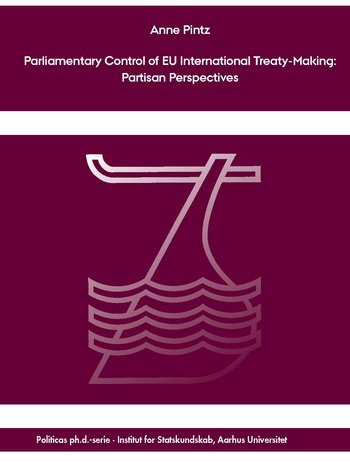Anne Pintz
Parliamentary Control of EU International Treaty-Making: Partisan Perspectives

EU international treaty-making has originally been set up according to the traditional division of labour in foreign policy: with a predominant role for the EU’s executive actors, and only limited involvement rights for the European and national parliaments. However, in recent years, the quest for democratic legitimacy of EU foreign policy as well as anecdotal evidence have started to shed doubts on this set-up. Against this background, this dissertation sets out to answer how and why parliamentary groups control EU international treaty-making. Building on principal-agent theory, the dissertation finds an increasing amount of parliamentary activity during EU international negotiations. This applies to the European Parliament and national parliaments, and, importantly, to different policy-making areas, such as trade negotiations, justice, home affairs and environmental negotiations. It demonstrates that parliaments do not act as unitary actors, but that party-ideological dynamics play a much more crucial role in parliamentary control than has been shown in previous work. Studying the drivers of control, the dissertation shows that parliamentary groups are rational actors that make strategic decisions about when, how, and how much to control EU international treaty-making based on expected costs and benefits of involvement. They are driven by vote-seeking and policy-seeking benefits, but constrained by resource and efficiency costs. By systematically demonstrating and explaining the growing attention of parliamentary groups to EU international treaty-making, this dissertation makes an important contribution to the study of parliaments in EU foreign policy.
![]() Ophavsretten tilhører Politica. Materialet må ikke bruges eller distribueres i kommercielt øjemed.
Ophavsretten tilhører Politica. Materialet må ikke bruges eller distribueres i kommercielt øjemed.